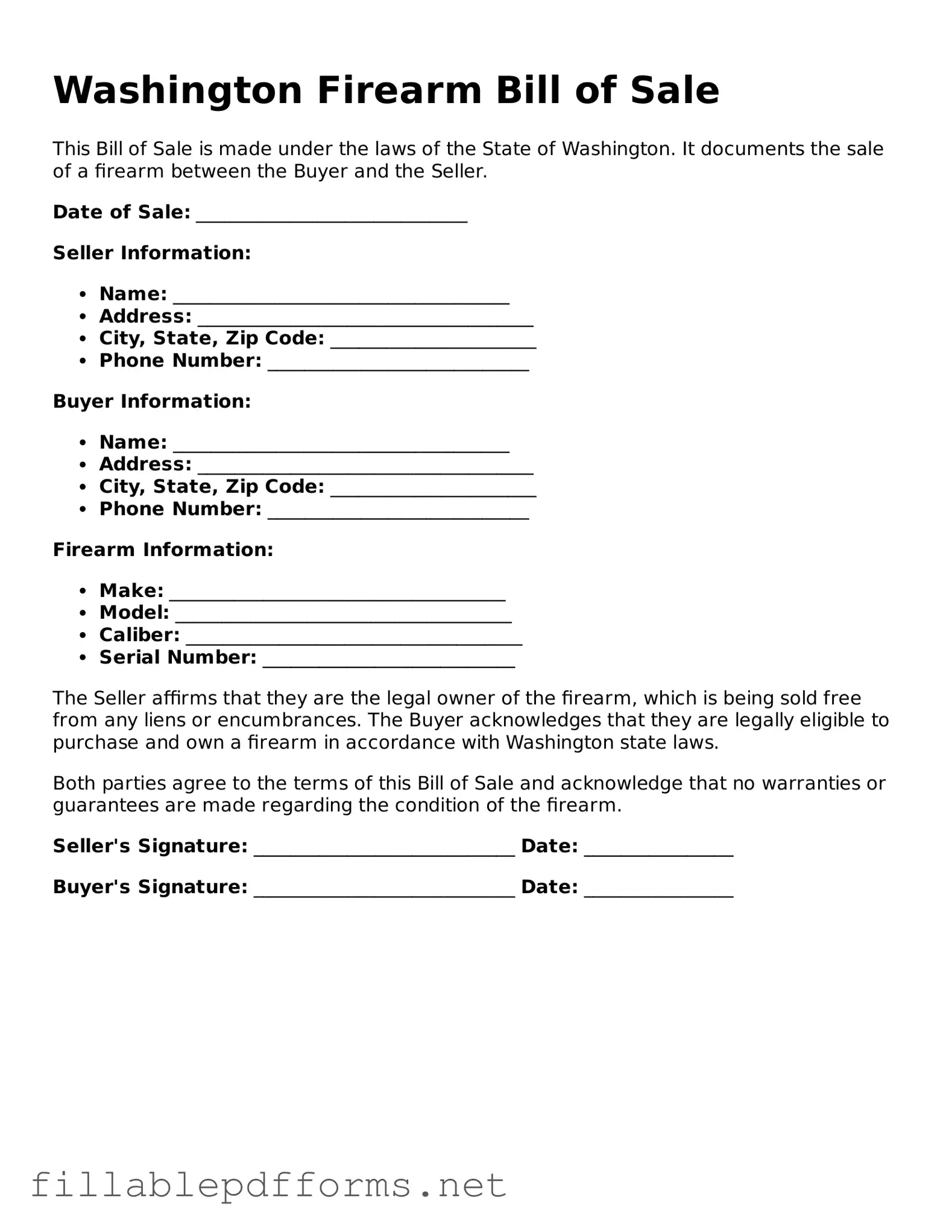Attorney-Verified Firearm Bill of Sale Form for Washington State
The Washington Firearm Bill of Sale form is a legal document used to record the sale or transfer of a firearm between two parties in Washington State. This form serves as proof of the transaction and includes essential details about the buyer, seller, and the firearm itself. Understanding this document is crucial for anyone involved in the buying or selling of firearms to ensure compliance with state laws.
Launch Editor Here

Attorney-Verified Firearm Bill of Sale Form for Washington State
Launch Editor Here

Launch Editor Here
or
▼ Firearm Bill of Sale PDF
Almost there — finish the form
Complete Firearm Bill of Sale online fast — no printing, no scanning.